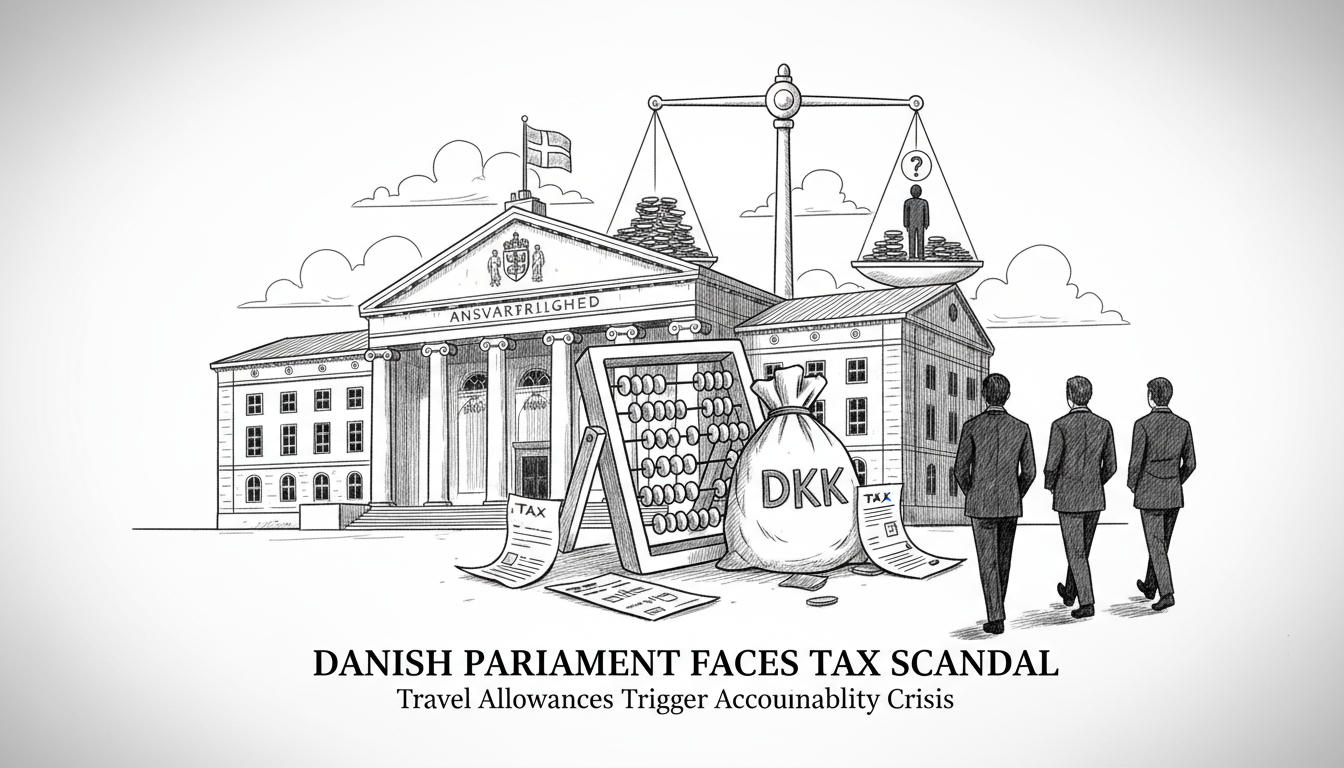Sixty-eight Danish parliament members received improper travel reimbursements totaling 664,500 kroner. These payments covered car travel expenses that should have been taxed but were not. The funds were distributed over a recent three-year period according to parliamentary officials.
The Danish tax authority will now include these amounts in the politicians' taxable income. Parliament administration confirmed the reporting to tax authorities in a public statement. They emphasized all amounts would be properly processed through the tax system.
This situation raises important questions about political accountability in Denmark's welfare system. Danish voters expect transparency from their elected representatives. The incident occurs amid ongoing public debates about tax fairness and political integrity.
Danish integration policies often emphasize the importance of following societal rules. This case demonstrates how accountability applies to all members of society. The welfare system depends on universal compliance with tax regulations.
Copenhagen integration specialists note that such cases can affect public trust. When political leaders face tax issues, it impacts community confidence in institutions. Social policy experts suggest stronger oversight mechanisms might be necessary.
Municipal social centers across Denmark work to build community cohesion. Incidents involving political figures can challenge these efforts. They underscore the importance of consistent rule application for all citizens.
The parliament has not disclosed which members received the improper payments. It remains unclear if any politicians self-reported these amounts to tax authorities. This lack of transparency concerns governance observers.
Denmark immigration policy often highlights the country's strong rule of law. This principle must apply equally to citizens and leaders alike. The situation shows how financial regulations affect all levels of Danish society.
What does this mean for Denmark's reputation for clean governance? The country typically ranks high in transparency international indexes. This case tests those perceptions and could influence future political accountability measures.
Danish society news frequently examines the intersection of politics and public trust. This story touches on core values within the Scandinavian model. The welfare state depends on shared responsibility and financial integrity.
Community leaders emphasize that resolution processes matter as much as initial mistakes. How parliament handles this situation will demonstrate institutional strength. Proper follow-through could actually reinforce public confidence in systems.
The case represents a relatively small financial amount in national terms. Yet its symbolic importance outweighs the monetary value. It tests the consistency of Denmark's much-admired social contract.

